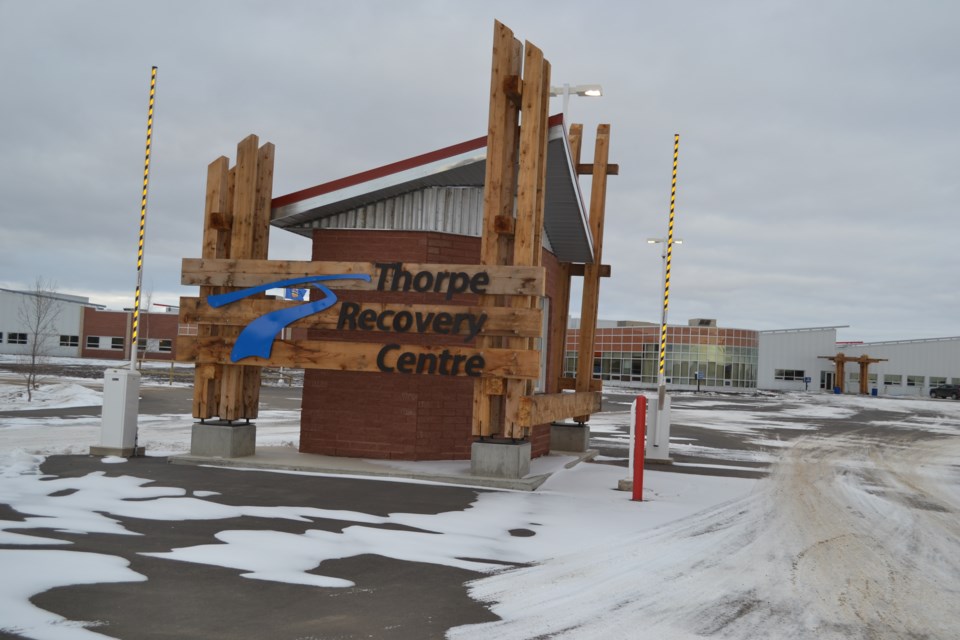Lloydminster– The fallout of the downturn in the oil economy is being seen by those who help those dealing with addictions.
Teressa Krueckl, executive director of the Thorpe Recovery Centre, just west of Lloydminster, said on Oct. 16, “Last week we’ve had some of the highest volumes of calls for treatment services, looking for funded beds.”
Thorpe Recovery Centre has 72 beds for treatment for alcohol and illicit drug addiction. The vast majority of those beds are privately paid for, to the tune of $17,000 for a 42 to 46 day residential program. If detoxification is needed, it’s $350 a day for seven to ten days.
Of those 72 beds, four are funded by the Alberta government, and two are funded by the Saskatchewan government. Usually about 25 per cent of their clients overall come from the Lloydminster area, and the vast majority are from Alberta. A small amount of their total clientele comes from coast-to-coast.
They have the capacity to take more people, running with less than 50 per cent occupancy on average. Waiting times for funded beds used to be two to three weeks now its eight to twelve weeks.
“Our waiting list for funded beds is into February,” she said.
Krueckl noted the first wave of layoffs earlier in the year are starting to see their employment insurance benefits starting to run out. That has led to more calls.
Their corporate clients are still sending in people, she added.
With employment insurance running out, Krueckl said, “Life takes on more stress. You can’t pay the bills. Life can spiral out of control.”
When people are busy, it’s not as noticeable. But they’re not busy. Krueckl said, “We’re nowhere near from this turning around.”
That might have an impact on people’s choice of drugs. She said Fentanyl is now a huge epidemic in Alberta. “It’s cheap, right,” Krueckl said, adding there’s been a corresponding change in crime, with thefts and break-ins to support drug habits.
The province of Alberta put $10 million into the facility recently. She noted it’s a shame to be underused.



